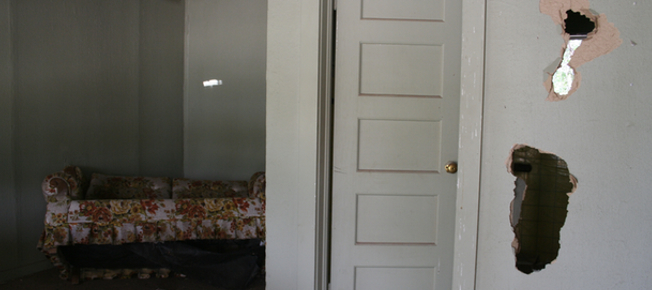Congratulations, you signed your lease on your new apartment! You moved in all your furniture, your PlayStation 3, your MacBook Pro, and your collection of Christian Louboutins. Three weeks later, you arrive home to find that your downstairs neighbor didn’t realize blocking the built-in wall heater with a wooden cabinet was a bad idea. Your apartment is scorched, and your belongings have been reduced to ash. But don’t worry—your landlord has insurance, so you’ll be ok… Right?
Actually, no. Your landlord has insured the building but not your personal property within the apartment. Stories like this are why you should consider getting renter’s insurance.
What is renter’s insurance?
Renter’s insurance covers your personal property within your apartment. In the event that it is damaged or stolen, the insurance company will give you the money to replace the lost belongings. (Just like your parents’ house insurance.) Renter’s insurance also provides liability coverage, which can help you if someone gets injured in your apartment.
How much is it?
Most renter’s insurance plans run $10-$35 per month and the price is determined by the size of your apartment, the value of your belongings, and your deductible. Personally, I’d rather pay a little more per month for a lower deductible—to avoid shelling out $500 before the insurance kicks in—but it’s your choice.
But do I really need it?
That really depends on you. One way to determine if you need renter’s insurance is to add up the costs of all your belongings and decide if that cost merits purchasing insurance. (Try using a rate calculator like this one offered by State Farm.) If not, consider less expensive options, such as getting a safety deposit box at a bank for any priceless treasures.
Another thing to consider is the location of your apartment. What’s the crime rate in your area? Have there been a lot of break-ins? Do you live on the ground floor? Do you live in a town where frozen pipes are common? Are you (or your roommate or your upstairs neighbor) likely to flood your apartment?
Finally, if you are a pet owner, and your pet was to bite another person, your renter’s insurance may be able to protect you from a liability lawsuit. (There is such a thing as pet insurance but it’s pet health insurance, similar to your medical insurance.)
How do I get it?
Progressive, AAA, Geico—any major insurance company—will offer renter’s insurance. I recommend trying to get a plan with the same carrier as your car insurance because they might offer a sweet multi-plan discount.
Am I missing anything?
Be sure to read the fine print for each plan and know exactly what your plan covers. For example some plans only cover damage on particularly valuable objects—such as musical instruments, electronics and fine jewelry—to a certain value. Others may have additional costs for liability coverage. Some policies will still cover stolen or damaged items even when they’re not at home (for example: in your car or hotel room).
But wait: you’re not done yet. Do you live in an area prone to natural disasters such as earthquakes, hurricanes, tornadoes, and/or floods?
You might have to purchase additional insurance to protect yourself. These plans have varying costs and restrictions. For example, residential insurance policies in California no longer cover damage sustained during an earthquake due to the losses sustained during the 1994 Northridge earthquake. You have to purchase additional insurance for this and other natural disasters, outside of your standard renter’s insurance plan. How this insurance is administered is regulated on a state-by-state basis.
In some cases, you may need multiple policies to cover one disaster. There was a lot of controversy after Hurricane Katrina as certain hurricane insurance policies only covered damage due to wind—despite the fact that hurricanes often bring rain and, therefore, floods. Many people were not covered since they had not purchased additional flood insurance.
I’m still not sure, where else can I get information?
Sites like this one from Allstate or this one from Insure.com have explanations of renter’s insurance that can help.
In the end, whether or not you purchase renter’s insurance is a personal decision. Just remember to make sure you know exactly what you’re getting. Nothing is worse than buying into a policy and, when it’s time to cash in, discovering you aren’t covered the way you thought you were.

Photo by Michelle White
3 thoughts on “Protect Your Shit: Renter’s Insurance”